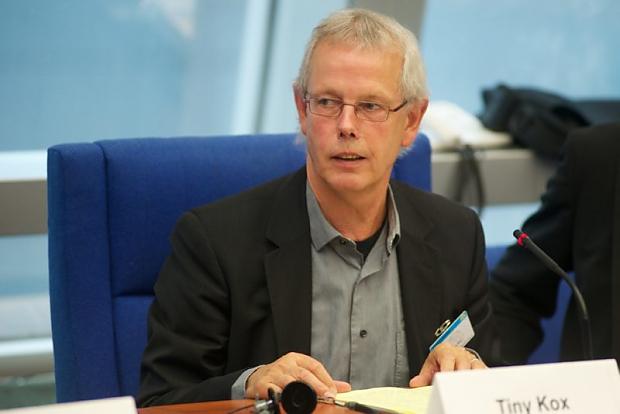Tiny Kox: Ukrainians must be able to trust that that injustice and crimes will not go unpunished
Tiny Kox: Ukrainians must be able to trust that that injustice and crimes will not go unpunished

Support for an ad hoc tribunal to try those responsible for the war against Ukraine is good news. But quick action is called for. The proposal to set up an ad hoc tribunal to provide trial for the 'crime of aggression' was first made by the Parliamentary Assembly of the Council of Europe last year. International law, blatantly violated in the illegal invasion of Ukraine on 24 February 2022, already provides for the prosecution and trial of most crimes related to this war.
First of all, Ukraine is entitled to prosecute crimes committed on its territory. In addition, other European countries, including the Netherlands, have the ability to take criminal action for crimes against humanity. The Hague-based International Criminal Court has jurisdiction to investigate and try crimes related to this war, including any punishability of top Russian authorities. Also, the ICC's mandate provides for trying those responsible at the highest level for starting the aggression ('crime of aggression').
But unfortunately, this mandate is limited to ICC member countries, which neither Russia nor Ukraine are. In order to bring the Russian president and his government before the Court in The Hague for that "mother of all war crimes", it would first be necessary to extend the mandate to non-member countries. That would have to be decided by the United Nations Security Council. Russia has veto power there.
As a result, any effort to take the 'crime of aggression' to the Criminal Court seems a dead end for now. This was why members of the Parliamentary Assembly of the Council of Europe called for the creation of an ad hoc tribunal soon after the Russian invasion of Ukraine. This happened earlier in history, for example after World War II at Nuremberg.
For such a special international court to have sufficient authority, control and strength, it would require broad international support, a solid international law base, intensive cooperation with other international judicial bodies and the Ukrainian judiciary, as well as a solid financial and organisational base.
The good news is that progress is being made on all these issues. After the initial scepticism, there is a growing realisation that an ad hoc tribunal may not be perfect, but it is the best possible legal construction in international law to prevent those responsible for the war of aggression from escaping justice. In April last year there was (unanimous) support for such a tribunal from members of the parliaments of the 46 member states represented in the assembly. The number of their governments supporting the case for such a tribunal is now also growing: The United Kingdom, France, Scandinavian and Baltic states and, recently, Germany. The European Commission supported the creation of an ad hoc tribunal back in December.
Among the countries that have long emphatically advocated following this path is the Netherlands. The Netherlands is able and willing to host the tribunal in The Hague, already a city of international law with a large number of international bodies, including the International Criminal Court.
In the preparation of the upcoming summit on 16 and 17 May in Reykjavik of the heads of state and government of the 46 Council of Europe member states, important steps can be taken to ensure that justice will finally be done and a tribunal can get to work.
Speed is required, and so is diligence. Wherever possible, the Council of Europe will assist in establishing this all-important international tribunal to ensure that impunity at the highest level for starting a war of aggression is no longer an option.
